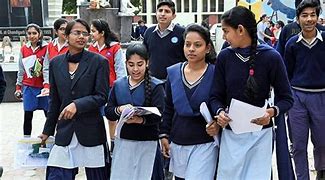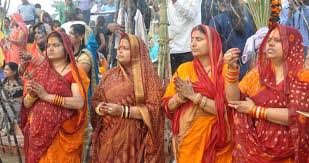Top News
Pappu Yadav may queer pitch for NDA and Grand Alliance in Kosi

By Brajendra Nath Singh
Saharsa (Bihar): Renowned Bihari litterateur Phanishwar Nath Renu of ‘Maila Aanchal’ fame had unsuccessfully contested the Bihar assembly election in 1972, raising the issues of flood, drought and migration about which he also wrote in his famous book ‘Teesri Kasam urf Mare Gaye Gulfam’.
The problems raised by Renu in the book, later turned into a film by Basu Bhattacharya, still exist in the Kosi region of Bihar. But these are no longer election issues in the current state assembly polls.
The region, comprising 13 assembly segments that include Saharsa, Madhepura and Supaul districts, is where Pappu Yadav is hoping to score with his new political outfit, the Jan Adhikar Party.
The region is traditionally a weak spot for the Bharatiya Janata Party (BJP). Despite the Modi wave in the 2014 Lok Sabha elections, the party could not win any of the three seats. Even in an alliance with the Janata Dal-United, the BJP could win only one assembly constituency in 2010 — Saharsa.
This time around, the BJP is hoping to do well, expecting a division in Yadav votes because of Pappu Yadav’s presence in the fray. In 2014, Rajesh Ranjan, better known as Pappu Yadav, had defeated JD-U president Sharad Yadav, who dominated the Kosi politics for a long time. Pappu Yadav had been sentenced to life imprisonment in 2008 by a Central Bureau of Investigation court for the murder of union leader Ajit Sarkar. But in 2013, the Patna High Court acquitted him of the charges for lack of evidence.
Pappu Yadav has joined, and exited, several parties, sometimes being expelled from some. He floated his Jan Adhikar Party earlier this year.
“Overall social equation of the region is in favour of the Grand Alliance, but Pappu Yadav factor can’t be ruled out. He may not win a single seat but may prove to be a game spoiler for the Grand alliance,” Dr. Amardeep Yadav, a resident of Madhepura, told IANS.
There are those, though, who say Pappu Yadav’s presence would not make too much of a difference.
Professor Sunil Yadav of K.V. Women’s College says, “Pappu Yadav has been exposed in this election. Everyone knows he is roaming around the region in a helicopter. Who is funding him? Yadavs are not fools.”
Some like Ajay Kumar, a teacher in Supaul, say it’s not easy to say which way the voters will go.
“Yadavs of the region are divided among themselves. Pappu Yadav’s significant presence in the region will also affect the voters. RJD chief Lalu Prasad has his own supporters and so has Sharad Yadav. Picture is not yet clear,” the teacher said.
In Murliganj of the Bihariganj assembly segment, the focus, though, is on jobs, not caste.
At a tea stall, Sudhir Yadav says pointing to his two other friends: “We are all looking for jobs. We had applied for position of IT operators at block level. All of us were selected but no joining letter has come for a year now.”
Sitting next to him, Rohan Gupta says: “What will we do? The sugar mill of Banmankhi in adjoining Purnia district was closed and this has affected sugarcane production. The Vyapar Mandal of the region is not working as the jute industry is almost closed. Condition of Baijnath paper mill is pathetic. But the political parties are busy in caste consolidation.”
The third friend, Mukund Kumar Mishra adds: “Chunav atey aur jatey hai. Har koi vikas ki baat karata hai. Lekin dharatal par shunya hai yahan. Koi bhi jeetey, kucch nahi hone wala. (Elelctions come and go. Everyone talks about development but on the ground there is zero. Whoever wins, nothing is going to happen).”
The BJP is contesting seven seats in the region, leaving four for Ram Vilas Paswan-led Lok Janshakti Party and one each for Upendra Kushwaha’s Rashtriya Lok Samata Party and former chief minister Jitan Ram Manjhi’s Hindustani Awam Morcha, its NDA partners.
Among the Grand Alliance members, the JD-U is contesting eight seats leaving five for the RJD.
Pappu Yadav’s party, though is contesting 12 seats, except for the Supaul assembly constituency. His wife, Ranjita Ranjan, had lost this assembly seat in 2010, though she won the parliamentary constituency in the area on the Congress ticket in 2014.
The Kosi region will vote on November 5, in the last phase of the five-phase elections.
Despite the frustration of many youth in the area, it’s not clear what form the voting pattern will take. The Pappu Yadav factor, though, appears to be queering the pitch for many.
Entertainment
Casino Days Reveal Internal Data on Most Popular Smartphones

International online casino Casino Days has published a report sharing their internal data on what types and brands of devices are used to play on the platform by users from the South Asian region.
Such aggregate data analyses allow the operator to optimise their website for the brands and models of devices people are actually using.
The insights gained through the research also help Casino Days tailor their services based on the better understanding of their clients and their needs.
Desktops and Tablets Lose the Battle vs Mobile
The primary data samples analysed by Casino Days reveal that mobile connections dominate the market in South Asia and are responsible for a whopping 96.6% of gaming sessions, while computers and tablets have negligible shares of 2.9% and 0.5% respectively.
The authors of the study point out that historically, playing online casino was exclusively done on computers, and attribute thе major shift to mobile that has unfolded over time to the wide spread of cheaper smartphones and mobile data plans in South Asia.
“Some of the reasons behind this massive difference in device type are affordability, technical advantages, as well as cheaper and more obtainable internet plans for mobiles than those for computers,” the researchers comment.
Xiaomi and Vivo Outperform Samsung, Apple Way Down in Rankings
Chinese brands Xiaomi and Vivo were used by 21.9% and 20.79% of Casino Days players from South Asia respectively, and together with the positioned in third place with a 18.1% share South Korean brand Samsung dominate the market among real money gamers in the region.
Cupertino, California-based Apple is way down in seventh with a user share of just 2.29%, overshadowed by Chinese brands Realme (11.43%), OPPO (11.23%), and OnePlus (4.07%).
Huawei is at the very bottom of the chart with a tiny share just below the single percent mark, trailing behind mobile devices by Motorola, Google, and Infinix.
The data on actual phone usage provided by Casino Days, even though limited to the gaming parts of the population of South Asia, paints a different picture from global statistics on smartphone shipments by vendors.
Apple and Samsung have been sharing the worldwide lead for over a decade, while current regional leader Xiaomi secured their third position globally just a couple of years ago.
Striking Android Dominance among South Asian Real Money Gaming Communities
The shifted market share patterns of the world’s top smartphone brands in South Asia observed by the Casino Days research paper reveal a striking dominance of Android devices at the expense of iOS-powered phones.
On the global level, Android enjoys a comfortable lead with a sizable 68.79% share which grows to nearly 79% when we look at the whole continent of Asia. The data on South Asian real money gaming communities suggests that Android’s dominance grows even higher and is north of the 90% mark.
Among the major factors behind these figures, the authors of the study point to the relative affordability of and greater availability of Android devices in the region, especially when manufactured locally in countries like India and Vietnam.
“And, with influencers and tech reviews putting emphasis on Android devices, the choice of mobile phone brand and OS becomes easy; Android has a much wider range of products and caters to the Asian online casino market in ways that Apple can’t due to technical limitations,” the researchers add.
The far better integration achieved by Google Pay compared to its counterpart Apple Pay has also played a crucial role in shaping the existing smartphone market trends.
Content provided by Adverloom

























